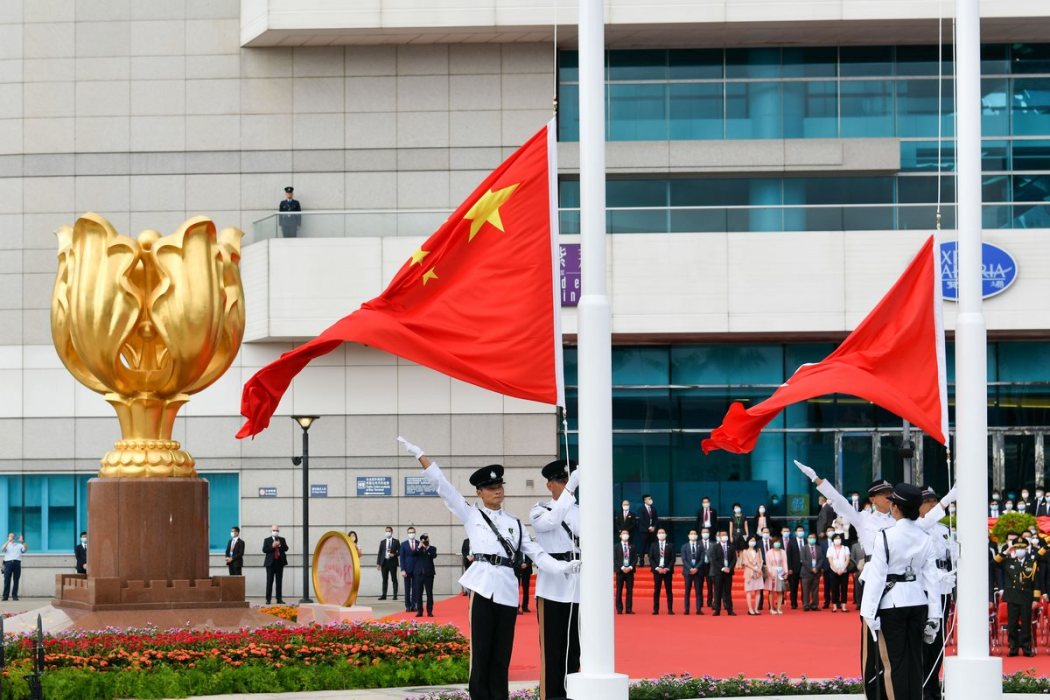The Hong Kong government has officially introduced an oath-taking requirement bill to the legislature, which will require district councillors to swear allegiance to the city and vow to uphold the Basic Law.
Secretary for Constitutional and Mainland Affairs Erick Tsang submitted the draft amendments related to oath-taking for public officers to the Legislative Council (LegCo) on Wednesday. The bill – consisting of nine parts and 31 amendments – seeks to extend the current loyalty pledge for government officials and lawmakers to members of the 18 district councils. The pro-democracy camp hold all but one district after their election landslide in 2019.

Tsang claimed there had been calls in society for the government to amend the legislation since 2016, when China’s top legislative body interpreted Article 104 of the Basic Law. The interpretation stated that oath-taking was a legal prerequisite for those listed in the provision – such as the chief executive and legislators – to assume office. The decision led to the ousting of several democrats form the legislature.
The constitutional and mainland affairs minister said that, while there was a lot of content in the bill, the basic principle was to ensure Hong Kong is administered by “patriotic people.”
“After thorough study and preparation, today we are conducting the first and second reading of this bill… we would like to have members support our bill and have it passed as soon as possible,” he said.

The new requirements were first unveiled last month, after a Beijing official said “anti-China disrupting Hong Kong forces” should be blocked from the city’s political structure.
The proposed legislative changes included a list of criteria for determining whether a public officer is obeying – or violating – the oath. For committing acts endangering national security or undermining the overall interests of the HKSAR, those who are deemed in breach of the oath will be ousted from their posts and barred from standing in the relevant elections for five years.
The second reading of the bill was adjourned on Wednesday and it was referred to the House Committee for legislators to study the suggested amendments.
Tsang claimed last month that the bill will not be retroactive, but the authorities will consider the past conduct of district councillors when reviewing their oaths. The official said at the time that district councillors Tat Cheng, Fergus Leung, Lester Shum and Tiffany Yuen, who were disqualified from joining the now-postponed 2020 LegCo election, would “in theory” be expelled form their posts when the bill is passed.
Resignation
The four democrats were also among the group of 47 who are facing trial under the Beijing-imposed national security law. They stand accused of committing “conspiracy to commit subversion” by organising and taking part in unofficial legislative primary elections last July.

One of the defendants, Gary Fan, who serves in the Sai Kung District Council, announced his resignation on Wednesday, saying he could not fulfil his duties as a district councillor because he is remanded in custody pending trial.
“Thank you everyone for supporting and encouraging me, thanks everyone for walking with me shoulder to shoulder in this turbulent time,” a post on Fan’s Facebook page read.
So far, only 11 of the 47 people charged have been released on bail. Those refused bail will remain behind bars until their next hearing on May 31.

On Wednesday, HK01 cited sources as saying Cheng, Leung, Shum, Yuen and 19 other district councillors involved in the subversion case were “extremely likely” to lose their seats. The report added that the government may ask the more than 400 district council members to take their oaths one by one, under the supervision of Secretary for Home Affairs Caspar Tsui.
Currently, 17 of the 18 district councils in Hong Kong are controlled by the pro-democracy camp. They are regarded as the last opposition force in the government, after lawmakers from the pan-democratic camp quit en masse in protest at the disqualification of four of their colleagues.
Support HKFP | Policies & Ethics | Error/typo? | Contact Us | Newsletter | Transparency & Annual Report | Apps
Help safeguard press freedom & keep HKFP free for all readers by supporting our team
























